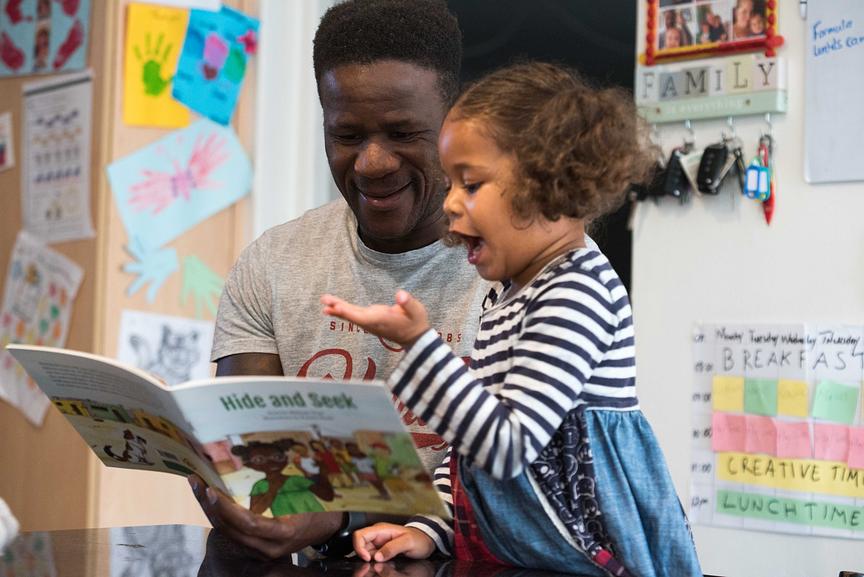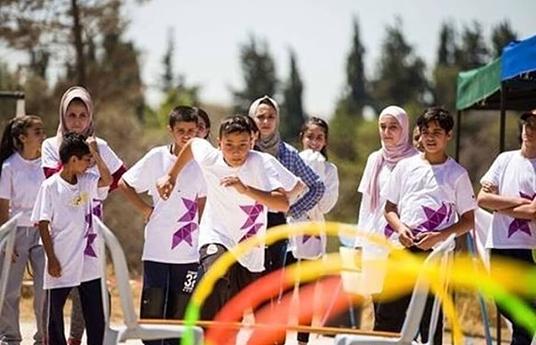A child's development in their first few years influences their lifelong education and health prospects. The parent-child relationship is one of the most powerful factors that influence how well they develop during these few years - sensitive and reciprocal relationships help children develop well. The purpose of this innovation is to help parents develop sensitive relationships with their child.
Dialogic book-sharing is an activity between a parent/caregiver and a young child (under age 6). The caregiver is trained, through an 8 session group learning process, to engage interactively with their young children. Using collaborative learning practices, caregivers learn specific techniques on how to use wordless picture books with their child, they practice what they have learnt and are mentored on where they have done well and how they can improve. Some of the most important book-sharing techniques include paying attention to and responding to children's interests and asking meaningful and stimulating questions.
Through this process, caregivers develop more sensitive and reciprocal relationships with their young children - they learn how to communicate and interact in tune with the child.
Several research studies, including a randomised controlled trial, has shown improvements in parents' sensitivity and reciprocity, and children's socio-emotional development.
Over the past few years, we have been building the capacity (training and mentorship) of community-based organisations (CBOs) to delivery the book-sharing programmes with families in their communities. We have trained ~25 CBOs across 4 provinces in South Africa. We have started integrating the book-sharing programme into the Department of Health in the Western Cape province. We train community-health-workers (CHWs) to deliver book-sharing introductions to mothers they are supporting as part of the First Thousand Days programme. We build capacity around the healthcare system, by creating links to the library systems in the districts already trained in book-sharing. This way, families can access ongoing book-sharing support. Over the next 3 years, our main focus is to expand this model.
We adopt a capacity building model (i.e., Train-the-trainer model). We work closely with organisations/groups wanting to deliver the programme to families in their communities. We first train a set of "Book-sharing facilitators" to deliver the programme to families, and over a 1 - 3 year period, we then train up a subset of the facilitators to become book-sharing trainers. info@mikhulutrust.org



